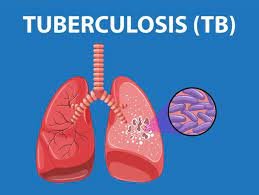For a century, World Tuberculosis Day has been officially observed on March 24 after the discovery by Dr Robert Koch, on the cause of tuberculosis.
This year’s theme is titled “Yes! We can end TB” which is crucial to addressing the pressing death rate as a result of tuberculosis in Nigeria.
Nigeria’s challenges remain significant, dataphyte data shows that Nigeria ranks sixth in the highest numbers of tuberculosis cases globally leading to 15,7000 deaths in 2021
This underscores the severe implications of undetected tuberculosis showing that one out of every carrier is cable of infecting more people
According to World Health Organization (WHO) recent data, in 2022 1.3 million people died from Tuberculosis (TB) including 167 000 people with Human Immune Virus (HIV) worldwide.
TB is the second leading infectious killer after COVID 19 (above HIV and AIDS)
Tuberculosis (TB) is an infectious disease that most often affects the lungs and is caused by a type of bacteria. It spreads through the air when infected people cough, sneeze or spit.
Is Tuberculosis Curable
A Nigerian woman who trades article recounts how her brother died of tuberculosis and shares with African Health Report (AHR)
“The name of my brother is Christian, he died at age 23, three years after continuous treatment of Tuberculosis, he was diagnosed at UNTH and given treatment at the hospital, he was always coughing and people ran away from him but I stayed and took care of my brother until his death,” she said
Symptoms of Tuberculosis
They include coughing, Coughing up blood or mucus, Chest pain, pain with breathing or coughing, Fever, chills, night sweats, weight loss, not wanting to eat, tiredness, and not feeling well in general.
Causes of Tuberculosis According to Mayo clinic studies
Tuberculosis is caused by a bacterium called Mycobacterium tuberculosis.
People with active TB disease in the lungs or voice box can spread the disease. They release tiny droplets that carry the bacteria through the air. This can happen when they’re speaking, singing, laughing, coughing or sneezing. A person can get an infection after inhaling the droplets.
The disease is more likely to spread when people spend a lot of time together in an indoor space. So the disease spreads easily in places where people live or work together for long periods. Also, the disease spreads more easily in crowded gatherings.



